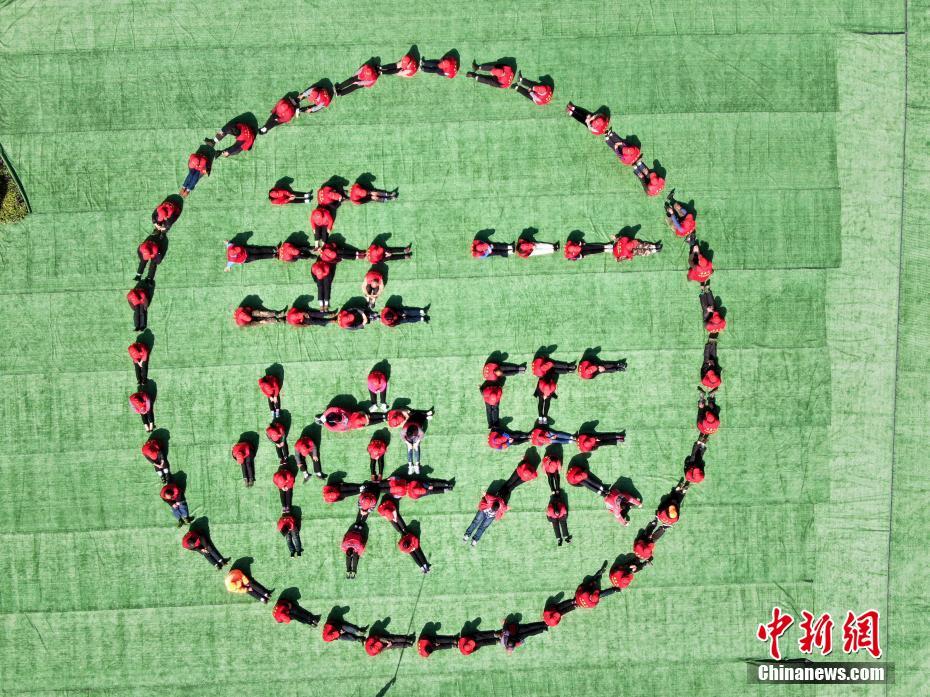A new report claims, surprise, social media isn't really that free. Instead, it's full of bad faith actors manipulating elections and government officials surveilling users.
The report, 2019 Freedom on the Net, comes from "independent watchdog organization" Freedom House. And after reading the whole thing (PDF), that still feels like it's underplaying the growing tire fire that is social media.
While the ongoing efforts to interfere with elections are a huge concern, the breadth of surveillance is just as disturbing. According to the report, 40 of 65 countries it studied (about 62 percent) "have instituted advanced social media surveillance programs."
 The government's eyes are upon you.Credit: Freedom House
The government's eyes are upon you.Credit: Freedom HouseIn terms of internet freedom, China was ranked as the least free country. Russia and Egypt were also ranked as "not free." In total, "89 percent of internet users or nearly 3 billion people" fall under some sort of surveillance program, an absolutely staggering number.
And how they're doing it is just as staggering. For instance, the report notes that in Iran, there's a "42,000-strong army of volunteers who monitor online speech." And China's Communist Party has a similar system of recruits leafing through data and flagging "problematic content." Meanwhile, Chinese firm Semptian boasts that its Aegis surveillance system helps it monitor over 200 million people in China.
Though the United States is listed as "free" of internet censorship, the report makes clear that the U.S. is hardly innocent. The report mentions Israeli cybersecurity company Cellebrite, who recently agreed to a new deal with ICE valued at between $30-35 million. Cellebrite's tools enable users to easily hack phones and grab all sorts of data.
And other countries are sending officials to the U.S. to learn how to monitor social media.
The report says that "Philippine officials traveled to North Carolina for training by US Army personnel on developing a new social media monitoring unit." And Bangladesh’s Rapid Action Battalion (RAB), a government-backed "anti-terrorism" unit that is largely known for massive human rights violations including torture and "extrajudicial killings," got the OK to travel to the United States in April 2019 to learn how to use “Location Based Social Network Monitoring System Software.”
 The many negative impacts of social media surveillanceCredit: Freddom House
The many negative impacts of social media surveillanceCredit: Freddom HouseThe study also lays out, crucially, how these governments are leveraging data collected by all this surveillance and —spoiler alert— it's not good! According to the report, "47 of the 65 countries assessed featured arrests of users for political, social, or religious speech."
SEE ALSO:Here's a growing list of companies bowing to China censorship pressureAnd, again, it's not just repressive regimes that are doing this. Even "free" countries like the UK and U.S. surveilled activists, including an instance in which ICE used "social media in New York City to gather information on groups protesting the administration’s immigration and gun-control policies."
The report is dense but very much worth a read to better understand just how widespread these practices are. Just don't expect to feel very good about internet freedom when you're done.
TopicsCybersecurityPrivacySocial Media
(责任编辑:焦點)
 The U.S. will no longer have the final say on internet domain names
The U.S. will no longer have the final say on internet domain names Danny DeVito gets his Twitter checkmark back after being temporarily unverified
Danny DeVito gets his Twitter checkmark back after being temporarily unverified Apple Wallet can now carry your driver's license or photo ID
Apple Wallet can now carry your driver's license or photo ID Joe Biden swats a cicada that dive
Joe Biden swats a cicada that dive More than half of women in advertising have faced sexual harassment, report says
More than half of women in advertising have faced sexual harassment, report saysFlorida hurricane forecast remains uncertain, but trends in state's favor
 For days, a war has been raging between two of the premiere computer models used to help predict the
...[详细]
For days, a war has been raging between two of the premiere computer models used to help predict the
...[详细]'Last Week Tonight' team publicly thirst over Adam Driver at the Emmys
 The 73rd Primetime Emmy Awards are currently underway, honouring the television shows that comforted
...[详细]
The 73rd Primetime Emmy Awards are currently underway, honouring the television shows that comforted
...[详细]A bonkers NFL touchdown went viral and it's sweet, sweet chaos
 Whatever you think of professional football, or even organized sports as a whole, the breathtaking c
...[详细]
Whatever you think of professional football, or even organized sports as a whole, the breathtaking c
...[详细]School board somehow fails to realize it's being pranked
 Who could have seen this coming.Readers will be shocked to learn that on Aug. 26, "Phil McCraken," "
...[详细]
Who could have seen this coming.Readers will be shocked to learn that on Aug. 26, "Phil McCraken," "
...[详细]U.S. government issues warning on McDonald's recalled wearable devices
 Last week's McDonald's debacle, which saw the fast food giant forced to recall its first wearable tr
...[详细]
Last week's McDonald's debacle, which saw the fast food giant forced to recall its first wearable tr
...[详细]'The Office' almost had a different theme song: A legendary pop hit.
 Doo DOO do do do do do, do do dodododo...The Officehas one of the most beloved, catchy, unique theme
...[详细]
Doo DOO do do do do do, do do dodododo...The Officehas one of the most beloved, catchy, unique theme
...[详细]SpaceX's Starlink to exit beta next month
 Changes may be in store for SpaceX’s Starlink network. The satellite internet system will exit
...[详细]
Changes may be in store for SpaceX’s Starlink network. The satellite internet system will exit
...[详细]How to change the time on your Fitbit
 A Fitbit does lots of great things, but there's one simple feature you surely want to work correctly
...[详细]
A Fitbit does lots of great things, but there's one simple feature you surely want to work correctly
...[详细]Fake news reports from the Newseum are infinitely better than actual news
 Actual investigative journalism: who needs it?At least, that's what some people will likely conclude
...[详细]
Actual investigative journalism: who needs it?At least, that's what some people will likely conclude
...[详细]Folks on Twitter are nominating the best movie roles under 15 minutes
 You don't need to be the main character to leave your mark on a movie.Sometimes it's the walk-in rol
...[详细]
You don't need to be the main character to leave your mark on a movie.Sometimes it's the walk-in rol
...[详细]The five guys who climbed Australia's highest mountain, in swimwear

SpaceX Inspiration4 video has stunning orbit views and a floating alien cameo
